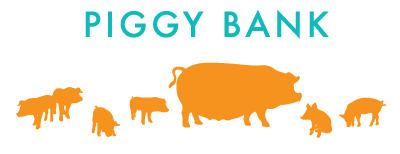We need safe and honest food sources! We need new farmers to provide these safe foods! Piggy Bank helps consumers, new and existing small family farmers and the pigs themselves. We are on life support trying to put safe food back on American tables!
ENDANGERED HERITAGE BREED PIGS
Heritage breed pigs will benefit by living a natural existence.
Most heritage pig farmers and the chefs that commit to using heritage pork are compassionate individuals who care deeply about breed preservation as well as animal welfare and sustainable farming. Heritage pigs are uniquely adapted to particular climates and terrains and are raised by small-scale family farmers that give pigs unlimited access to open pasture and range. With access to fresh air and sunshine, they can forage and live naturally in an environment where they can thrive. When pigs are raised in confinement, they have no room to move freely and they are generally subject to deplorable conditions – hard surfaces, gestational crates that completely restrict movement of sows, and foul odors of ammonia that can harm their lungs.
“Taste aside, the ethics of working with heritage meat is the single most important factor. If I'm going to consume a life, I want to know that animal had a good life up until the point that it became food. I know this animal was well cared for. It was allowed to run in the woods and forage for acorns. That means a lot to me."
St. Louis restaurant chef speaking to NPR
NEW FARMERS
Creating and maintaining a ‘Noah’s Ark” dedicated to breeding, raising and distributing heritage breed pigs will benefit new farmers by providing them with the genetics needed, at no cost, to establish their farm.
Through a commitment to open access agriculture and the sharing of information, new farmers will also benefit from the guidance and support of existing, successful farmers who are members of Piggy Bank’s collaborative network. Information will include successful strategies for maintaining and growing their herds, as well as how to reach and connect with access points in the market.
EXISTING FARMERS
Existing farmers who become part of the collaborative can expand their farms without incurring the cost of genetics.
By sharing their business plans and knowledge with new farmers, existing farmers will likewise benefit from being part of a community of like-minded heritage pig advocates.
More importantly, the piglets produced at the farm sanctuary will also be available to existing farmers in the collaborative who lose their herds due to natural disasters or disease.
By providing easily accessible information about sustainable heritage breed farming practices, farmers have a greater chance of success, thus increasing the availability of higher quality, sustainable pork available in local and regional foods systems throughout the country.
CONSUMERS
More family farmers raising heritage breed pigs means ensuring accessibility to safer and tastier pork products for consumers.
SAFER FOOD
Present and future generations of consumers will benefit from safe, high quality and highly flavorful pork products. Pasture raised, naturally fed heritage breed pigs are not tainted with the pesticides, hormones and antibiotics associated with modern confinement pig growing practices.
FOOD SCARCITY PREVENTION
The declining number of family farmers raises concerns about food scarcity for future generations, specifically related to non-GMO products. To ensure that there is enough food for the future, we need to build up new farmers. Most of today’s family farmers are older and there are not enough new, emerging farms and farmers to maintain the present supply of non-GMO food products. By supplying new farmers with heritage pigs along with a roadmap on how to be successful, we are reducing our risk of food scarcity.
MORE FLAVORFUL FOOD
Heritage breed pigs have more marbling than modern breeds, have significantly different yields, and most of the heritage breeds are slow growing. Studies show that slower growth results in a better flavor profile, providing variety to the marketplace for meats, just as heirloom fruits and vegetables have added variety and quality to the produce market.



